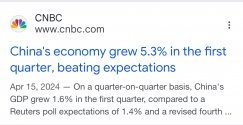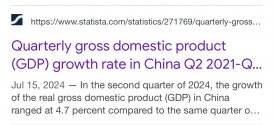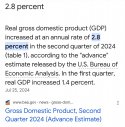To complicate matters, when the bonds are first issued they are actually auctioned, so if the yield is high the government may not get its full RMB100 face value.Bond yield and Bond rates are separate things.
Let's say China issued a 10 year 100 RMB face value bond of 5% rate. In the next 10 years, this bond will be traded on the open market at transaction value of more than RMB100 if the demand is high or less than 100 RMB if the demand is low.
As far as the central bank is concern, regardless of whatever value the bonds are traded in the market, they will only liable to pay 5% on the face value of 100 RMB which is equal to RMB5. They are not going to pay more if the bond yeild is high in the open market, nor are they going to pay less if the bond yeild is low.
As for the investors, if they pay more due to high demand, and bought the bonds at RMB110, then to them the bond yeild is low as they will only receive RMB5 or their investment of RMB110. - Low Bond Yield.
ON the other hand if the bonds are traded at lower value of RMB90, then the investor will gain a higher yeild of RMB5 on their investment of only RMB90.
1) Changes in bond yieds does not change the bond rates (eaxample 5%) that the government is paying.
2) Low bond yields on the market means the demand for the bond is high, as investors have high confidence that the government will not default on repayment when the bonds are due/matured.
3) On the other hand if a bond is considered junk bond or the government that issued the bonds has financial difficulties, investors will only buy the bonds if the yeild is high because they are taking high risk in their investment, in fact they are gambling hoping the government will have money to pay them back. Junk Bonds are traded at much lower prices than their face value.
You are using an out of date browser. It may not display this or other websites correctly.
You should upgrade or use an alternative browser.
You should upgrade or use an alternative browser.
Chinese Economics Thread
- Thread starter Norfolk
- Start date
supercat
Colonel
I don't take Pettis seriously because he is the one who insisted in the early 2010s that China's average growth rate would be around 3% in the next decade at best, if China was lucky enough to avoid a lost decade. At that time, he seemed to think that China would have a lost decade and stagnate with deflation, just like what Japan was experiencing. I have no idea what he thinks now, because I just don't care what he says anymore. I mean, he doesn't know the difference between China and Japan? Seriously?It seems to this guy that there is an expectation from the authorities to support the demand side in China with policies to be approved in the coming months to boost growth
Germany is doubling down in China.
German investment in China soars despite Berlin’s diversification drive
Politicians warn of rising geopolitical tensions but country’s carmakers stick with Chinese manufacturing
China is still not as urbanized as other advanced economies. With an urbanization rate of like 60% there is a long way to go. So while the real estate sector is currently undergoing a downturn it is unlikely this will last more than 5 years. Which is the typical amount of time it takes for property crashes to wind down. In 10 years the property market will be in a growth phase again.
Forgoing debt is forgoing opportunity. If Europe actually put themselves in debt post 2008 to invest into themselves, they probably would've been better off today, and the debt wouldn't even have been a huge burden considering the rates back then.Sovereign debt is not risk free. Just look at what happened to Biafra or what is happening with Ukraine right now. They basically defaulted on their debt.
Today? It's a different story, and of course it's important to avoid a deficit spiral like the one U.S. is currently undergoing.
China's nominal GDP growth rate was lower than America's last quarter. Not what you would expect given huge disparities in income per capita.China's 5.5% growth is bad. But US is 2.5% is great.
Someone never taken grade 10 math learning exponential growth.China's nominal GDP growth rate was lower than America's last quarter. Not what you would expect given huge disparities in income per capita.
They aren’t comparable given the different denominators but the key word there was nominalChina grew at 5.3% first quarter and 4.7 second.
US at 1.4% first and 2.8 second.
Which last quarter are you talking about?
View attachment 134181
View attachment 134182
View attachment 134183
proelite
Junior Member
They aren’t comparable given the different denominators but the key word there was nominal
Why would an net exporting nation care about nominal GDP.



